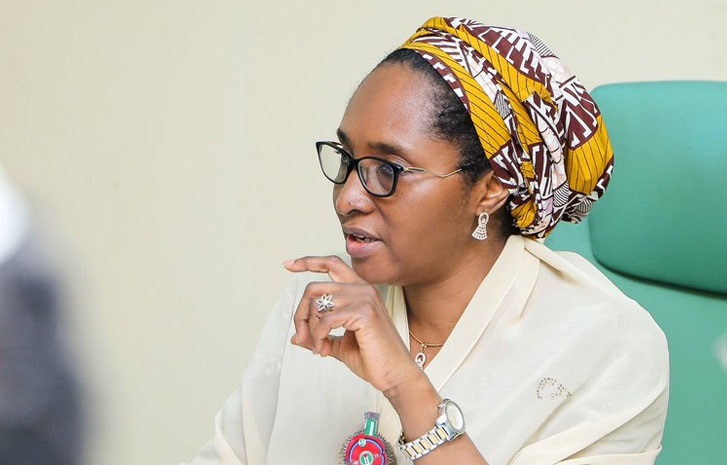POLITICS
NASS, Finance minister parley over 2022-2024 expenditure framework

The leadership of the National Assembly on Monday met with the Minister of Finance, Mrs. Zainab Ahmed, on projections of the 2022-2024 Medium Term Expenditure Framework and Fiscal Strategy Paper (MTEF/FSP).
It was reported that the NASS team was led by the Senate President, Dr. Ahmad Lawan, and the Speaker of the House of Representatives, Rt. Hon. Femi Gbajabiamila
Also, in attendance were the Deputy President of Senate, Sen .Ovie Omo-Agege, Deputy Speaker, Idris Wase and other principal officers of both chambers.
In his opening remarks, Lawan said the meeting was at the instance of the NASS leadership to specifically deliberate on the projections of the 2022-2024 MTEF/FSP, with a view to facilitate early presentation of the 2022 budget by President Muhammadu Buhari in September.
Lawan reiterated the commitment of the ninth National Assembly commitment to an early passage of the nation’s annual budget.
“We all recall how this ninth National Assembly committed itself to ensuring the passage of the appropriations before the end of December of every year, to enable implementation of the Appropriations Act to start in January of every year.
“So far, we have achieved that in the 2020 budget and 2021 budget as well.
“This has significantly improved the implementation of the Appropriations Act, culminating in the 100 percent implementation of the 2020 budget, and we are optimistic that the implementation of the 2021 budget would also achieve 100 per cent.
“The 2022 appropriations bill will be predicated on the MTEF/FSP 2022-2024, and it is very important that this interaction takes place, so that the National Assembly is able to consider the MTEF in very good time to allow the Executive arm of government prepare the appropriations bill for 2022.”
Minister of Finance, Mrs Zainab Ahmed noted that Nigeria was able to exit recession in the third quarter of 2020, despite the impact of the COVID-19 pandemic on the global economy.
This, she said, had an attendant negative growth on the Nigerian economy occasioned by significant and sudden drop in crude oil price at the international market.
The minister said although the Nigerian economy earned more revenue in 2020 from non-oil sectors, other sectors such as transport still remained in the negative.
“The economy, since then has sustained a tepid growth in the first quarter of 2021, with a growth of 0.51 percent consolidating our exit from recession in the fourth quarter.
“The growth of the economy, we are pleased to say, is driven largely by the non-oil sector, which has risen to 0.79 percent, masking the deterioration in the oil sector.
“The sectoral growth in the non-oil sector was primarily driven by the telecoms and agriculture sectors, as well as other sectors of the Nigerian economy.
“Significant concerns still exist in the performance of trade, as well as the transport sector, which are still in a very strong negative growth”, she said.




























 Davido's Net Worth & Lifestyle
Davido's Net Worth & Lifestyle 
